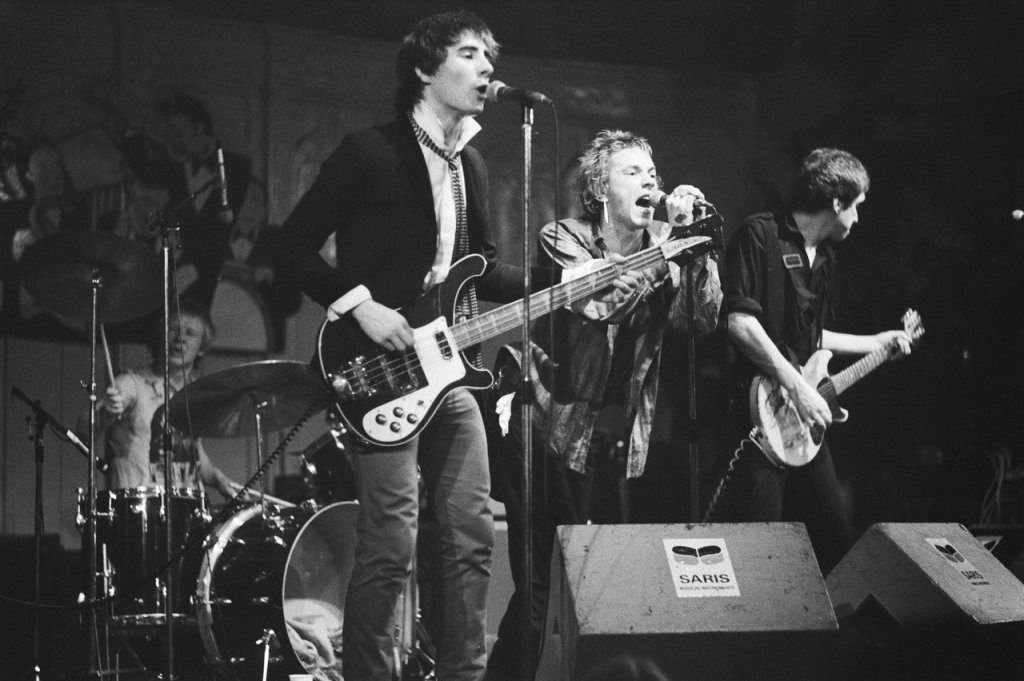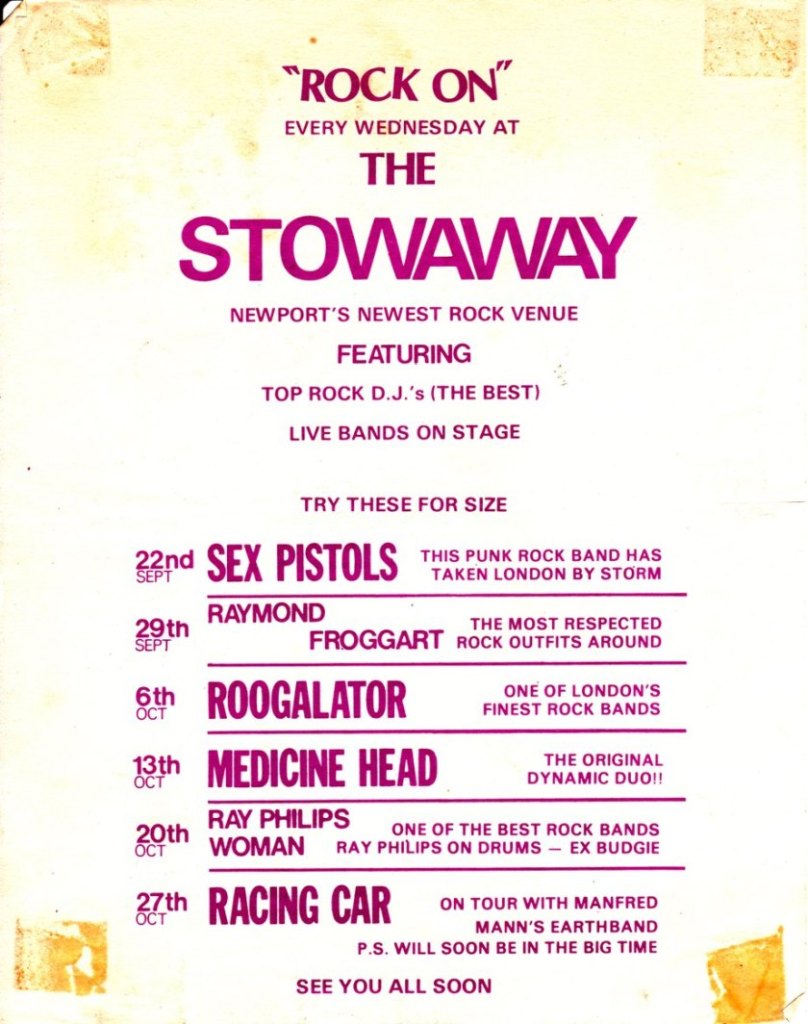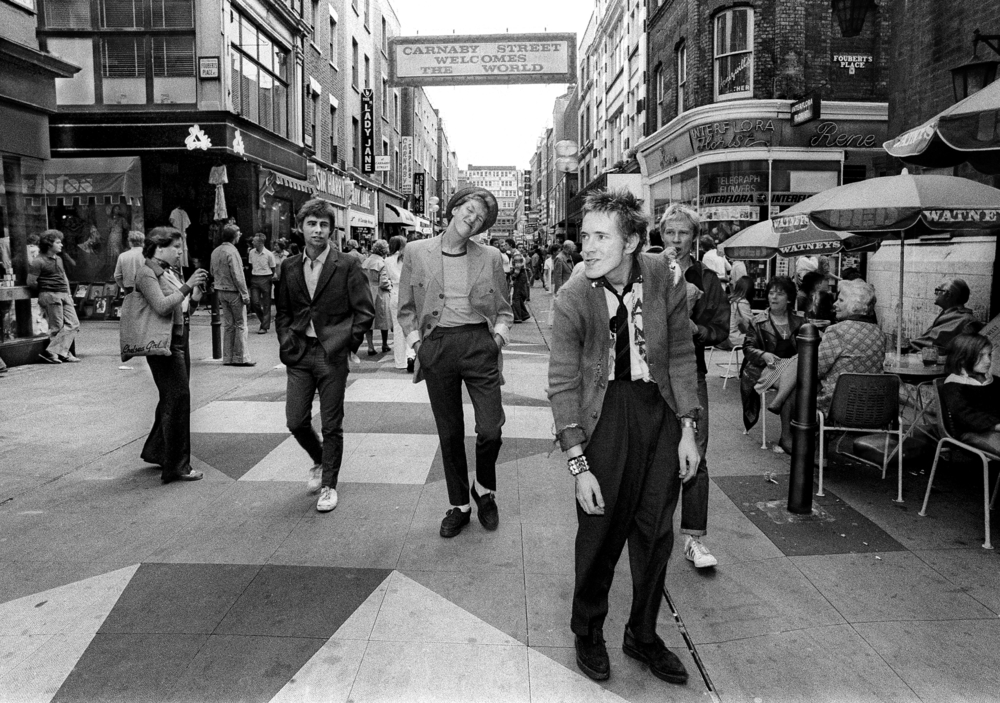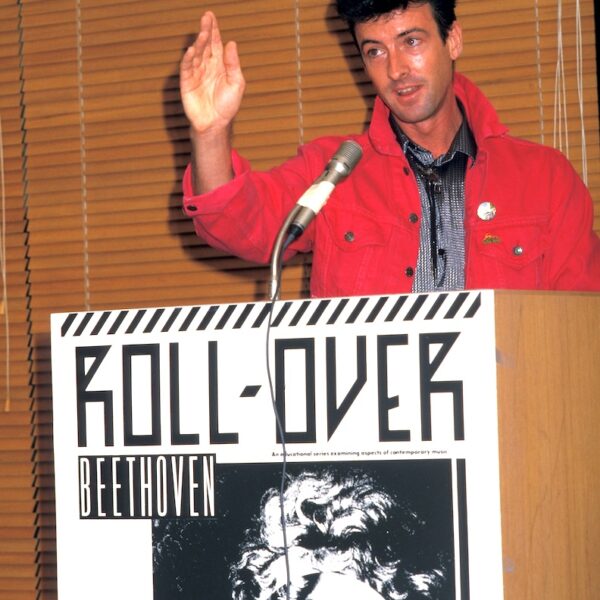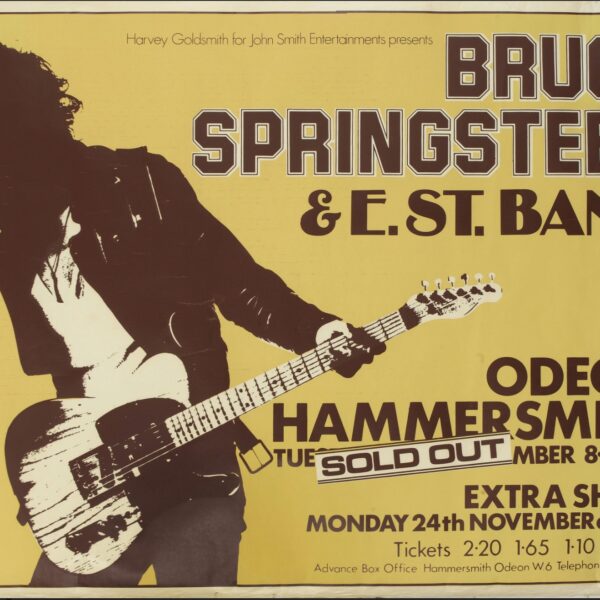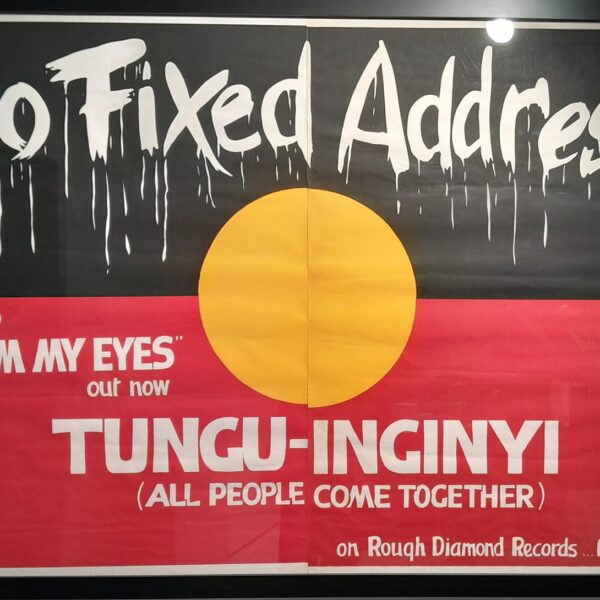Sex Pistols at the Stowaway Club, Newport
My first published article. From Street Fever, the punk fanzine produced by Stuart Coupe and myself in Adelaide in December 1977.
I was on a train from Darlington to Bath in 1976 when I first heard of the Sex Pistols. I had been away from England for six weeks working in Libya for a surveying company. I was on my way home after delivering some maps to head office. I could’ve stayed overnight, but I’d had enough of hotels. I remember the date well. It was 10th of September, my birthday.
I bought a Melody Maker on the platform to read on the journey. To see what was happening on the music scene. Not much as I remember. But there was one article that stood out and whose significance today is greater still. It was by Richard Williams, the paper’s most respected critic. His column was often devoted to jazz so I rarely bothered reading it. But this one caught my eye.
It consisted of a series of flash-forwards to the year 1996, more specifically news items and interviews with one Johnny Rotten and his group the Sex Pistols. In a clever parody of the lifestyle enjoyed by many of today’s rock superstars, Williams set Johnny in a South of France villa, sipping a tequila sunrise and defending the band’s policy of playing only one concert a year in Britain. Rotten also defended the band’s poor performance at their recent Wembley Superbowl gig, saying they had been exhausted after their American tour. He dismissed reports the band were over the hill and promised they would deliver the goods at their next appearance.
‘Are you the Sex Pistols?’ I asked. ‘We might be,’ sneered one of them.
At first I thought the article was making an abstract point about how rock goes in cycles. That by its very nature the music business alienates rock’n’roll musicians from their roots and turns them into jet set playboys and playgirls. Today’s Johnny Rotten is tomorrow’s Mick Jagger. I didn’t realise at the time that Johnny Rotten was a real person and not just a figment of Richard Williams’ imagination. It wasn’t until later on that same journey that, purely by accident, I met an old friend from Bath who informed me that the Sex Pistols were very much for real and were spearheading a whole new movement in music. He was actually singing with a punk band in Derby who had played in Manchester with the Buzzcocks. I was intrigued.
A few days later I was walking from work to the station in Newport, South Wales, when I saw a poster stuck to a boarded-up shop. It said, ‘Rock On/Every Wednesday at/THE STOWAWAY/ September 22nd—Sex Pistols’ and alongside, ‘This punk rock band has taken London by storm.’ Great, I thought, I can’t miss that.
So on the night in question, after discovering that the band weren’t coming on until 10 p.m., I was strolling down Newport High St with three friends from work, looking for somewhere to get a drink. It was a quiet night, not many people about, so I immediately noticed the four young guys walking towards us. There was a London look to them that seemed definitely out-of-place in Newport High St. They were small, thin and very pale.
‘Are you the Sex Pistols?’ I asked.
‘We might be,’ sneered one of them.
‘We’re going to see you later.’
‘Oh yeah?’ Pause. ‘Hey, is there a pub around here?’
‘Yeah, up there on the left.’
‘Hmmm.’
And off they went.
It never occurred to any of us to go with them. They weren’t friendly.
At the club, a plush disco/nightclub affair that doubled as a lunchtime strip joint, I had my first taste of punk fashion. Black plastic bin liners were very popular, safety pinned to keep them together. Slogan-daubed leathers, tight drainpipes and multi-coloured spiky hairstyles were also in evidence. I remember thinking—do they know something I don’t?
The Pistols came on loose, played their anarchy rock and looked like they couldn’t give a shit what you thought of them. ‘And we don’t caaaaaare!’
The first number was Anarchy In The U.K. The lyrics were pretty much indecipherable but the sound fitted the title perfectly. The sheer aural assault was incredible. All eyes were on Rotten as he snarled, sneered and spat out his words. ‘I/wanna be/anarchy.’ On his left, Steve Jones chopped out vicious chords and piercing lead. To the right, Glen Matlock was pumping out solid bass and behind them all, Paul Cook was thrashing seven bells out of his kit.
Rotten’s contempt for the audience, for everything, was unrelenting and obvious. And it wasn’t a put-on—the incident on the street was proof of that.
Rotten on stage is a man transformed, possessed. There is a fascination in watching someone in the grip of forces beyond their control.
I Wanna Be Me continued where Anarchy left off. Loud, raw, chaotic. Rotten hunched over the mic, spitting out the lyric, ‘I wanna be someone/ I wanna be someone/ I wanna be me.’ Halfway through the song, things started to happen. The amps started to spark, Glen Matlock broke a string (on his bass for Christ sakes!) and the song screeched to a halt.
The audience shook itself out of its state of stunned amazement and started to recover its wits. The delay was a long one. Matlock had to go off stage to seek out a replacement string and Rotten was left holding the dead mic. The crowd was given time to decide whether they liked what they’d heard. Most of them didn’t and the catcalls started. Rotten answered back, but only half-heartedly. He realised he’d lost his power, his back-up muscle. The adrenalin started to ebb. Have they blown it, I wondered?
The electrical problems were finally sorted out and Matlock reappeared with a new string but the impetus had been lost. The crowd was openly derisive now, but the Pistols weren’t fazed by that. They seem to thrive on hostility and while they never regained that initial stunning ferocity, they clawed their way back into the set. The energy level was still way over what most bands would attempt.
Rotten on stage is a man transformed, possessed. There is a fascination in watching someone in the grip of forces beyond their control. Propping himself up with the mic stand, he leans forward into the crowd, his face contorted, his voice rising over the throbbing waves of sound, the words washed away in the torrent.
A venomous version of I’m Not Your Stepping Stone was the first recognisable non-original song. Yes, the old Monkees’ tune, but like you’ve never heard it before. Stripped down, speeded up and sung by Rotten in a manner that would have terrified Davy Jones (who?) and Mike Nesmith (what?) had they been there. What have they done to my song, Ma? Indeed.
They also had a bash at Pete Townshend’s Substitute. It didn’t work for me. They don’t need 60s anthems when they are writing the anthems of the 70s.
I was lucky to see them when I did because it was one of the last gigs they did before the shit hit the fan with the now infamous Bill Grundy Thames TV show. It was also before they signed with E.M.I. So at that stage they were a live band and nothing else. Now they are a recording band who have to resort to unpublicised guerrilla tours to beat the local authority bans slapped on them during the Anarchy In The U.K. tour last December (1976).
Reports from the guerrilla tour are heartening though. It doesn’t seem as though they have lost any of the raw power and energy that so impressed me and of course everyone is more familiar with their material. When the bans are lifted—there are reports of an extensive British tour ahead of an Australian one in April (1978)—the release of a year’s pent-up frustration on the stage and in the crowd is going to be awesome to behold. I wouldn’t miss it for the world.
Put on Never Mind The Bollocks. Imagine it live. Now don’t you agree, it’s still a long way to St. Tropez?
£ £ £


